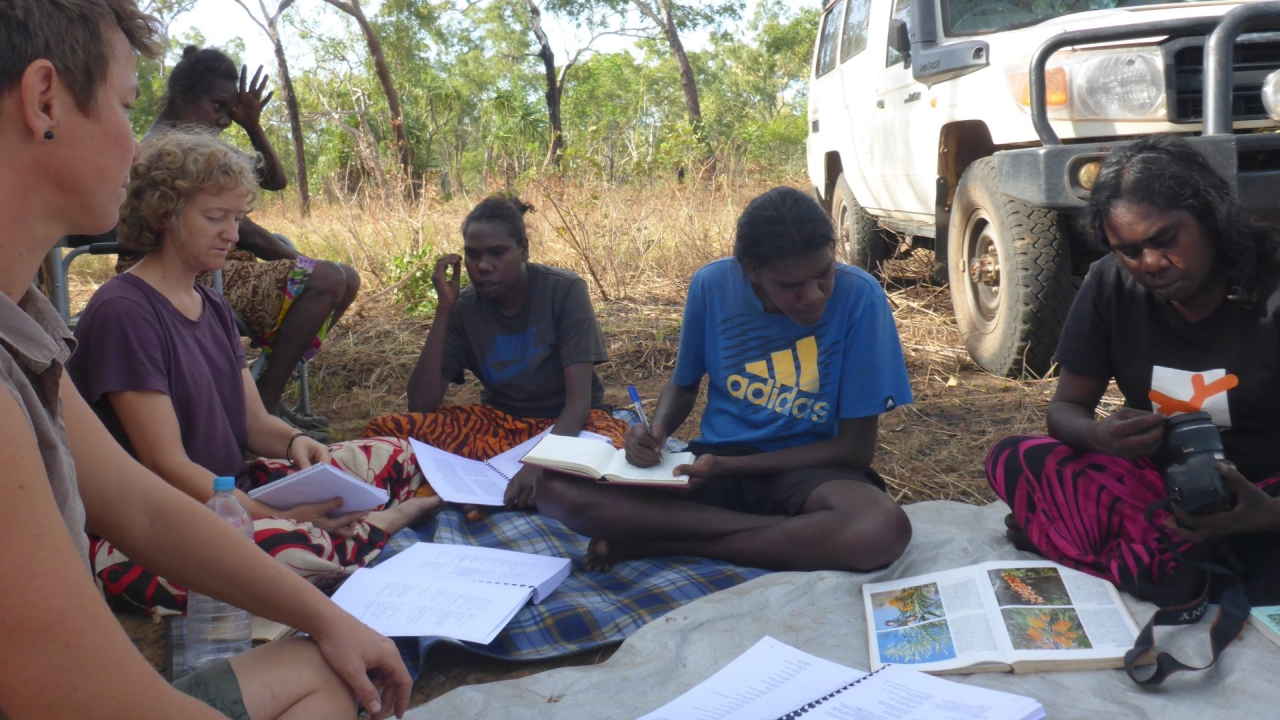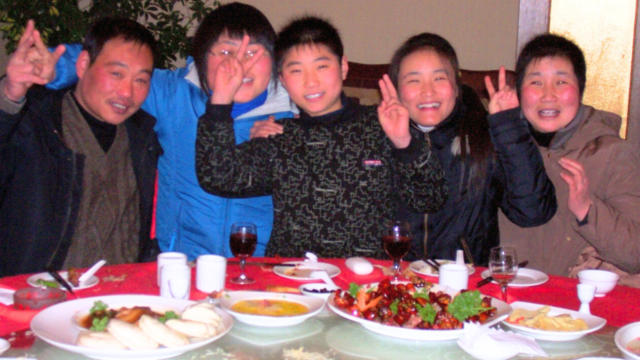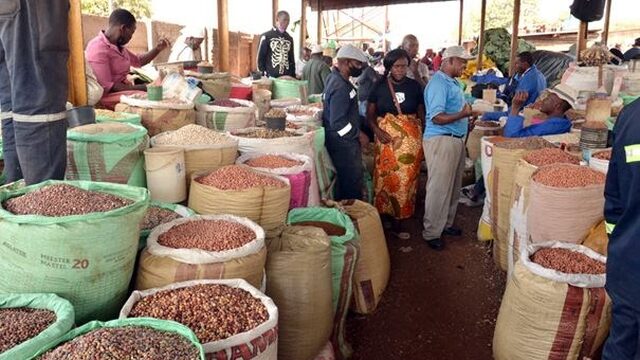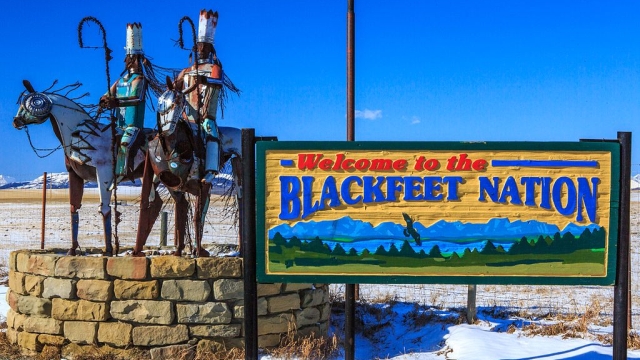
Weaving knowledge systems: Honouring Indigenous knowledge
By Chels Marshall, Rosalie Chapple and Joanne Wilson. Originally published on the Integration and Implementation Insights blog.
What is Indigenous science? How can it be properly recognised? How can we overcome current practices where Indigenous knowledge-holders are generally not regarded as experts, their knowledge is not used as evidence or in decision-making, and non-Indigenous people think Indigenous knowledge needs to be ‘validated’ by Western science?
Lack of recognition of Indigenous data sovereignty raises concerns about the conduct of research – by and for whom? Indigenous cultural knowledge is often used without permission or proper protocols, and is used and appropriated under Western science.
What does successfully honouring Indigenous knowledge look like?
“All partners contribute a thread that builds a bigger picture – weaving a mat based on cultural heritage management that we can all sit on together.”
- The term ‘Indigenous science’ being used to recognise cultural ways of observing, testing and producing evidence.
- The evidence produced through cultural knowledge would be respected for its own integrity and principles in how it observes, respects and learns from nature. It would be recognised that Indigenous spirituality, interconnectedness, relatedness to environmental processes, and relationships and practices in nature and culture create a holistic knowledge embedded in culture and Country (see glossary below).
- Indigenous knowledge and science would be recognised as equal status to Western science.
- Right-way science principles would be applied where Indigenous knowledge and conservation science are appropriately woven with Western science based on free, prior, and informed consent (FPIC).
- Sovereignty is recognised, with Indigenous knowledge and data protected, respected and cared for through Indigenous cultural and intellectual property (ICIP) agreements.
- Co-production of knowledge systems together, such as co-design of collaborative decision-support tools.
- Indigenous-led and Indigenous-controlled – further shared practice is needed to understand what this looks like.
What are the challenges?
- Western scientists need to partner with traditional owners and custodians (see glossary below) in scientific data collection, data usage and data translation. This involvement of traditional owners and custodians shifts the power away from Western scientists, to be shared.
- Indigenous people confront difficulties in protecting their intellectual property while Indigenous knowledge is not recognised as a science equal in status to Western science.
- Indigenous knowledge, cultural landscapes and culturally important species and ecosystems are not being recognised or respected.
What needs to change?
- Western scientists don’t always ask if they can work on Country or if they are welcome on Country, and that must change.
- Scientists need to not only respect Indigenous owners’ and custodians’ rights and knowledge and ask permission to conduct research on Country, but also to evolve their approach to the co-design and co-delivery of research.
- Benefit-sharing is critical – scientists should ask how this can be achieved. Traditional owners and custodians should be given access to research data when researchers do research on Country. Researchers need to involve traditional owners and custodians in scientific data collection, data usage and data translation – this shifts the power.
- Results of Western scientific studies need to be shared with traditional owners and custodians in a timely and understandable way.
- Equity in approaches towards two knowledge systems – how can Indigenous science be recognised as a branch of science on its own and to be of equal status to Western science? It is time for a paradigm shift in science, time for another scientific revolution that involves a fundamental change in society’s world views and attitudes towards nature, that constitutes a shift in how we relate to the natural world. Re-asserting the legitimacy of the cultural evidence system requires removing misconceptions that there can only be one standard of production of scientific evidence.
- Indigenous people need access to affordable legal advice when negotiating agreements.
- Indigenous people need to be fairly remunerated for their participation in projects and for their knowledge.
Conclusion
Our experience with the issues discussed in this i2Insights contribution has arisen in the Australian conservation context. How does this gel with experience in other countries and research contexts? Do you have success stories and lessons to share?
To find out more:
Chapple, R., Wilson, J., McCreedy, E., Archer, R., Gore-Birch, C., Hunter, B., Davey, K., Malcolm, L, Cochrane, P., and Humann, D. (2023). Reimagining Conservation: Working Together for Healthy Country. Report of 3-day Reimagining Conservation Forum, Meanjin / Brisbane, November 2022, produced by the North Australian Indigenous Land and Sea Management Alliance, Australian Committee for IUCN (International Union for Conservation of Nature), and the Protected Areas Collaboration. (Online): https://www.aciucn.org.au/reimagining-conservation-forum
Much of the text is taken verbatim from a chapter in this report.
In the Australian context, the AIATSIS (Australian Institute of Aboriginal and Torres Strait Islander Studies) Code of Ethics for Aboriginal and Torres Strait Islander Research sets national standards for the ethical and responsible conduct of all research undertaken by, with and about Indigenous people. It is for use by those undertaking research, reviewing research or funding research, including individuals, universities, governments, industry and community organisations. (Online): https://aiatsis.gov.au/sites/default/files/2020-10/aiatsis-code-ethics.pdf (PDF 608KB).
Reference:
Australia State of the Environment. (2021). “Indigenous” chapter, (Australian Government). (Online): https://soe.dcceew.gov.au/indigenous/introduction
Biographies:
 |
Chels Marshall PhD is a cultural systems ecologist belonging to Gumbaynggirr Jagun from the Baga Baga/Ngambaa clan (Northern New South Wales, Australia). She is a senior research fellow in the Indigenous Knowledges Systems Lab of the National Indigenous Knowledges Education Research Innovation (NIKERI) Institute at Deakin University in Melbourne, Australia. She implements cultural ecological knowledge and First Nations science frameworks to creating virtual and physical environments for sharing knowledge through art, science and Indigenous metaphysics. |
 |
Rosalie Chapple PhD is a senior research fellow in the TD School, University of Technology Sydney, Australia. She is an animal ecologist, with a focus on protected areas and wildlife, and is inspired to work with Indigenous peoples in reimagining protected areas and other conservation measures, so they are more effective, inclusive and equitable. Her research engages with the conundrum of the overlapping boundaries between animals seen as pest, pet or wild, and with socio-politically contentious issues such as bushfires, feral animals, dingoes, wild horses and (currently) Indian street dogs. |
 |
Joanne Wilson PhD works for the New South Wales Environmental Protection Authority in Port Macquarie, Australia and is a member of the Board of the Australian Committee of the International Union for Conservation of Nature. Over her 30-year career she has worked in diverse roles across governments, industry and non-government organisations often at the nexus of environmental science, management, policy and community engagement. She has worked in diverse cultural settings and currently works with Aboriginal people and communities to bring cultural values, perspectives and knowledges to environmental protection. |
Article source: Weaving knowledge systems: Honouring Indigenous knowledge. Republished by permission.
Header image: Cross-cultural botany session: recording names and knowledge of plants from Aboriginal and western science. Source: Atlas of Living Australia, CC BY 3.0 AU.







